Making A Difference: Donna Laurent Helps Kids Navigate TheCourt System
When Donna Laurent decided to semi-retire, she wanted to find something useful to do with the time she now had on her hands.
This article ran in the Caledonian Record on on Sept. 5, 2017
By Leah Carey
Sep 5, 2017
 JEFFERSON, NH — When Donna Laurent decided to semi-retire, she wanted to find something useful to do with the time she now had on her hands.
JEFFERSON, NH — When Donna Laurent decided to semi-retire, she wanted to find something useful to do with the time she now had on her hands.
“I really, really enjoy children – children of all ages,” Laurent said recently. “There’s so many different volunteer organizations and things you can do, and I had more of a desire to get involved with
something that would help children.”
She found the Court Appointed Special Advocate program of New Hampshire was the right place for her. Volunteers are known as “CASAs” or, in some places, guardian ad litem (GALs).
“You are appointed by the court to be [the child’s] voice within the legal system that they are going through,” Laurent explained. “Someone somewhere in their life has gotten involved in a legal situation, which has gotten [the child] involved in the court as well … You find out what is going on in their life. You’re really just trying to give voice to their needs throughout a very complex legal
situation.”
While Laurent said her job is not to become the child’s friend or counselor, she spends a lot of time with the child building a relationship. “It’s very important that they feel secure,” she said. “Many times they’ve been let down … Generally you just listen. You listen to them and let them express their feelings and their needs. Because no one has ever listened to them and they just want to be heard.”
Some of the children in the system are pre-verbal or non-verbal, so there is also a lot of observation involved. “Many times it’s your judgment as to whether the child is being cared for adequately and having proper supervision.”
Then she spends many hours speaking with people involved in all aspects of the child’s life: education, physical health, mental health, DCYF, foster families, and more.
“It’s a volunteer situation and it does take up time,” Laurent said. “I was nervous about doing it because you don’t know what’s involved, and because it’s so serious. You don’t want to ever let anyone down.”
But, she said, the experience has been stellar.
“The organization really does give their volunteers a lot of support,” Laurent said. “I think the volunteer gets more out of being a volunteer than they might anticipate. There’s training, there are support groups, there’s education opportunities. You learn so much and you help your community … you’re helping the youth.”
Laurent said that when she first approached CASA, there was an extensive process to become a volunteer.
“First you fill out an application that’s quite lengthy. Then there are in-person interviews. Then after the interviews they do several different types of background checks … Then there’s a training program that you go through that’s about 12 weeks.”
The training program, Laurent said, prepared her to handle experiences she hadn’t had before.
“You learn about how to handle the legal processes of cases that you may come up with. You learn how to write the court reports that are needed. They train you how to handle different situations – there’s all kinds of rules and regulations and procedures as far as interacting with the children and the families and providers that might be involved,” she said. “They really make sure that everybody goes out well-versed in a lot of different types of scenarios that you could come across.”
Each volunteer also has a regional manager they can go to for advice and support. “There’s always someone there to mentor you or help you. It’s a great organization because there are lots and lots of volunteers and there are people who really care about children and families.”
Due to the nature of her work, Laurent wasn’t able to speak about the specifics of any cases, but she gave us some broad strokes.
Volunteers are appointed, but they always have the opportunity to accept or turn down a case.
Laurent has been with the organization for about a year and currently has two cases (which she says is the maximum for someone as new as she is.)
“Generally an average case is about 12 months, or they can certainly go on for a lot longer,” she said. She meets with the children in her caseload at least once a month, plus numerous meetings with all the interested parties in a case.
“What I would like to express is the importance of the organization,” Laurent said. “If you have any experience working with children or have any desire to work with children to help, and are looking for a volunteer organization to work with, I highly recommend it.”
“They’re the most amazing people on earth, to be honest,” said Jessica Storey, a CASA NH program manager and CASA supervisor in Grafton County. “They’re regular people who get to know the kids and the families so they can describe for judges – who are making really critical decisions about children and families – about what the right course is, given the circumstances.”


